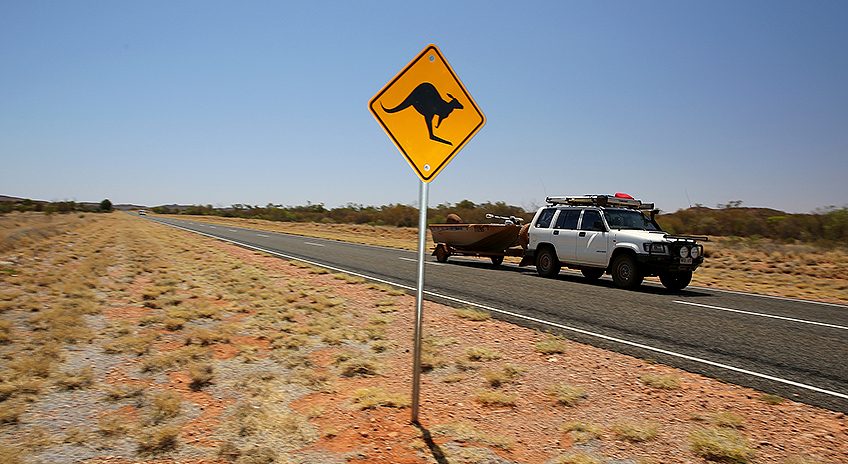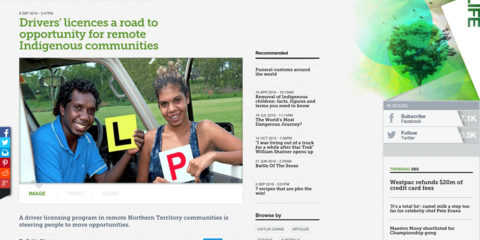
Northern Territory program steering change in Aboriginal and Torres Strait Islander communities
A program to enable Aboriginal and Torres Strait Islander people to obtain their drivers licence can help reduce incarceration and injury rates and improve the health of communities, a new report has found.
Researchers at The George Institute for Global Health analysed DriveSafe NT Remote, which as of July 2016, has seen more than 4,000 people gain a learner or provisional licence.
The program was set up by the Northern Territory (NT) Government in 2012 across 23 remote communities to address the barriers that prevent Aboriginal people living in remote communities from accessing the licensing system.
In the NT, Aboriginal and Torres Strait Islander people make up 84 per cent of the prison population. Driving and vehicle regulatory offences account for a quarter of the entire population being in jail.
Over a two year period, DriveSafe workers aided with the process of applying for licences, taking theory tests and providing driving lessons. It led to a 24 per cent increase in the amount of people having a learner licence in the regions taking part.
The findings were presented today (Sept 8) at the 2016 Australasian Road Safety Conference (ARSC) in Canberra.
Lead investigator Rebecca Ivers said: “There are multiple barriers to licensing that this program has successfully overcome in partnership with remote communities all over the NT. Having a driver licence opens the door to better opportunities for education and employment as well as reduced road deaths.”
Professor Ivers, of The George Institute for Global Health, added that current low rates of licensing was contributing to the high numbers of Aboriginal people in prison.
Professor Ivers said: “There is a huge need for programs like this all over Australia. Having a licence can be transformative. It can help with getting an education, holding down a job, and accessing healthcare.
“But licensing offences and other driving offences also contribute to high rates of incarceration for Aboriginal or Torres Strait Islander people in the NT. DriveSafe NT Remote therefore has the potential to deliver real and lasting change in communities across the NT and reduce the amount of people in our prisons.”
Wayne Buckley, manager of DriveSafe NT Remote said: “DriveSafe NT Remote’s approach to a flexible service delivery model is working in partnership with locally based third parties. We develop innovative and unique educational resources to address environmental and cultural attributes that might impact on Indigenous learning styles, particularly for those with low levels of English literacy this underpins the sustainability of the program.



